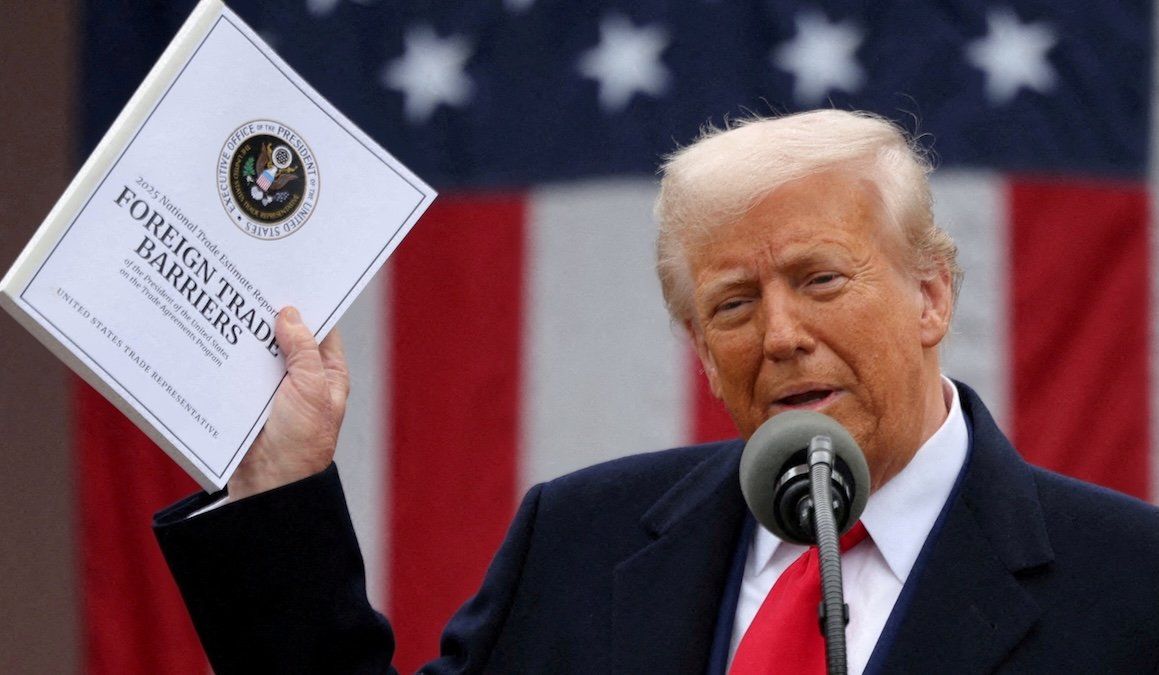President Donald Trump holds a "Foreign Trade Barriers" document as he delivers remarks on tariffs in the Rose Garden at the White House on April 2, 2025.
Donald Trump’s much-anticipated “liberation day” tariff announcement on Wednesday is the biggest disruption to global trade in decades, so the political, diplomatic, and economic impacts will take time to become clear.
In a dramatic unveiling in the Rose Garden, Trump set in place tariffs of at least 10% on most US trading partners, which set off a global sell-off of stocks, a rebellion from some Republicans, and angry rebukes from shocked trading partners.
It is hard to game out what will happen next because it has been so long since a shock on this scale hit the global tradition system. “We’re literally going back 100 years for historical precedents, and I’m not sure that there is an economic precedent of a policy-driven change of this magnitude in this direction,” says Eurasia Group senior analyst Graeme Thompson.
Trump’s new policy will make it more expensive for Americans to buy products from most countries, which investors fear will lead to a dramatic global economic slowdown and drive up inflation. Trump’s stated goal for the new policy is to stop foreign countries from taking advantage of the United States and boost American manufacturing, but observers and analysts are almost universally united in skepticism around the “golden age” that he promises they will bring.
Because the results are hitting investors and will soon hit the pocketbooks of consumers, there will be growing pressure on Republicans in the House and Senate to force Trump to change course. Until now, Trump’s popularity with his electoral base has kept them in line, but this new policy may put that under strain. Four senators voted with the Democrats in a (likely only symbolic) vote against Canadian tariffs late Wednesday, an acknowledgment that Republicans could face political blowback in the midterms for these widespread duties.
The political reaction is taking place before other countries have even put in place retaliatory measures, which can be expected to damage American exports. The greatest downside is unpredictability.
“I think what is hitting investors globally at this point is that uncertainty,” says Thompson.
“If you just came in and said, very clearly, ‘This is what’s happening, end of story,’ I think a lot of companies wouldn’t be happy, but they could work with it, but that’s not the story that we’ve got right now.”
It’s hard to see anything positive in the reactions from markets in the short term, and the political and diplomatic reaction in the United States and abroad is likely to test the strength of Trump’s support.
